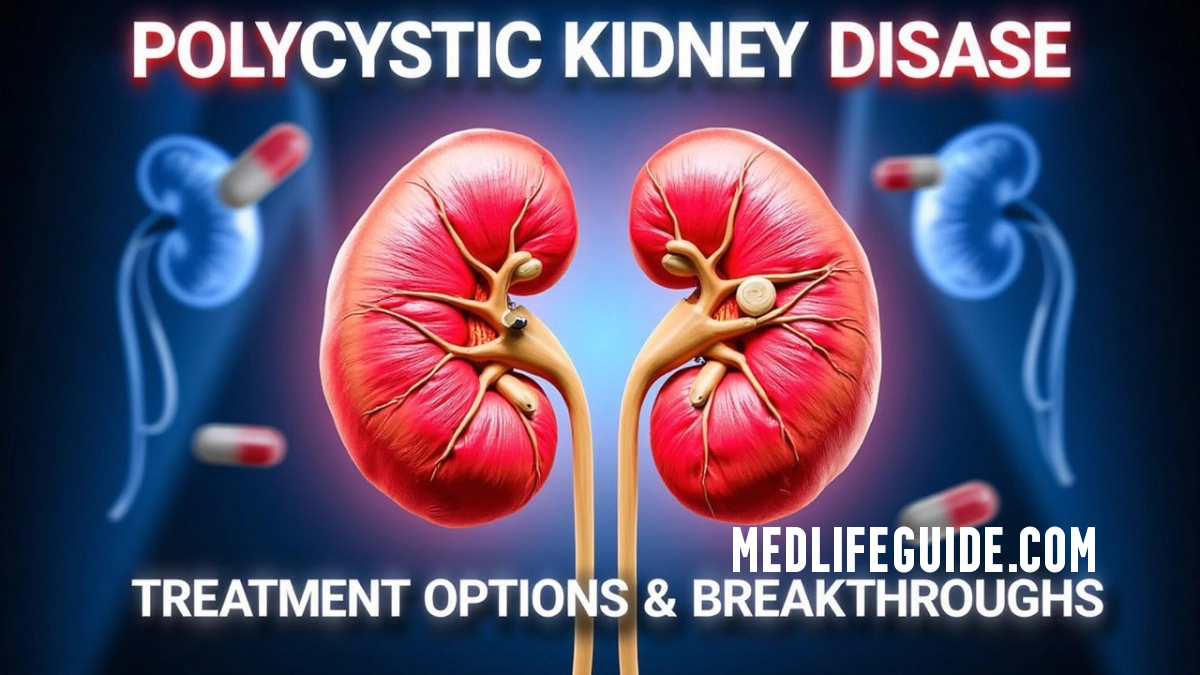Polycystic Kidney Disease (PKD) is a genetic disorder causing fluid-filled cysts to grow in the kidneys, leading to kidney failure if untreated. While there’s no cure yet, modern treatments can slow progression, manage symptoms, and improve quality of life. This guide explores evidence-based treatments, emerging therapies, and lifestyle strategies for PKD patients.
Understanding Polycystic Kidney Disease (PKD)
PKD comes in two forms:
- Autosomal Dominant PKD (ADPKD) – Most common, symptoms appear in adulthood.
- Autosomal Recessive PKD (ARPKD) – Rare, affects infants and children.
Symptoms include:
- High blood pressure
- Back or side pain
- Frequent UTIs
- Kidney stones
Current Medical Treatments for PKD
1. Medications to Slow Cyst Growth
- Tolvaptan (Jynarque) – The only FDA-approved drug for ADPKD, slows cyst growth but requires careful monitoring due to side effects like liver toxicity.
- Blood Pressure Control (ACE Inhibitors/ARBs) – Essential to prevent further kidney damage.
2. Pain Management
- NSAIDs (short-term) or acetaminophen for chronic pain.
- In severe cases, cyst drainage or surgery may be needed.
3. Treating Complications
- Antibiotics for UTIs.
- Dietary changes to manage kidney stones (low sodium, high hydration).
Emerging & Experimental Therapies
Research is advancing rapidly, with promising treatments in clinical trials:
- Metformin (repurposed diabetes drug showing cyst-reducing effects).
- Stem Cell Therapy – Potential to regenerate damaged kidney tissue.
- Gene Editing (CRISPR) – Future possibility for correcting genetic mutations.
Lifestyle & Dietary Strategies
While medications help, lifestyle plays a crucial role:
1. Hydration Matters
- Drinking 3-4 liters of water daily may reduce cyst growth by suppressing vasopressin.
2. Kidney-Friendly Diet
- Low Sodium (under 2,300 mg/day).
- Moderate Protein (avoid overloading kidneys).
- Avoid Caffeine (may worsen cyst growth).
3. Exercise & Stress Management
- Gentle activities like walking or yoga help circulation and reduce stress.
When to Consider Dialysis or Transplant
In end-stage renal disease (ESRD), options include:
- Dialysis (Hemodialysis or Peritoneal Dialysis).
- Kidney Transplant – The best long-term solution for eligible patients.
Actionable Takeaways
- Early diagnosis is key—regular check-ups if PKD runs in your family.
- Stay hydrated and follow a kidney-friendly diet.
- Monitor blood pressure to slow disease progression.
- Explore clinical trials for cutting-edge treatments.
Conclusion
While PKD is a lifelong condition, advancements in treatment offer hope. Combining medical therapies, lifestyle changes, and emerging science can significantly improve outcomes. If you or a loved one has PKD, consult a nephrologist for a personalized plan.

